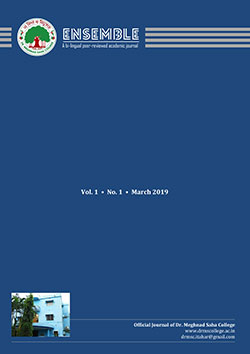PSYCHOSOCIAL STRESS CONTAGION OF COVID-19: ISSUES AND INTERVENTION CHANNELS
Abstract:
Along with its elevated contamination and fatality rates, the 2019 Corona Virus Disease (COVID-19) has caused worldwide psychosocial impact by causing mass hysteria, financial burden and economic losses. Mass fear of COVID-19, termed as “coronaphobia”, has generated a glut of psychiatric exposition across diverse strata of the society. So, this review has been set about to portray psychosocial impact of COVID-19. Disease itself conglomerated by mandatory quarantine to counter COVID-19 applied by countrywide lockdowns can generate acute panic, angst, obsessive behaviors, stock piling, paranoia and depression, and post-traumatic stress disorder in due course. These have been stirred up by an “infodemic” spread via various platforms of social media. Outbreak of racism, stigmatization, and xenophobia against particular communities are also being extensively reported. Nonetheless, frontline healthcare workers are at elevated risk of acquiring the disease as well as experiencing detrimental psychological outcomes in shape of exhaustion, worry, trepidation of transmitting infection, augmented substance-dependence and PTSD. The present article attempts to investigate these areas of contagion and suggest intervention dynamics to address the issue and therefore observes that psychosocial crisis prevention and intervention models should be urgently devised by the government, health care personnel and other stakeholders. Appropriate application of internet services, technology and social media to control both pandemic and ‘infodemic’ require to be initiated. Psychosocial alertness by setting up mental organizations particular for future pandemics is indeed crucial.
Keywords: Adjustment obscurities, Coronavirus infodemic, Health crime, Info media ecosystems, Learned helplessness, Psychological health reforms, Real-time maps, Stigma, Stress contagion
https://doi.org/10.37948/ensemble-2021-sp1-a006
Views: 3095



